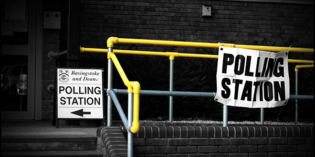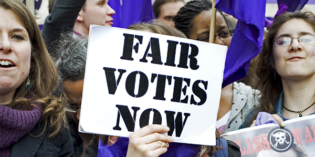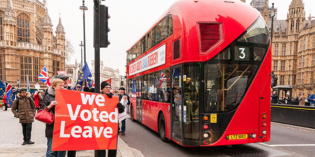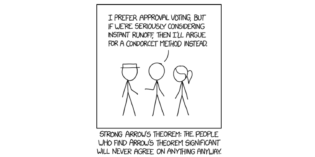Elections and electoral systems

Local elections 2019: Uncontested seats mean thousands of voters will be denied their democratic rights
Uncontested and under-contested council seats in English local elections mean that in areas where one party dominates, many voters face little or no choice about who their councillors are. Ian Simpson from the Electoral Reform Society argues that the solution to this democratic deficit is to reform the electoral system.

Selfies, policies or votes? How politicians can campaign effectively on Instagram
Twitter and Facebook have become crucial arenas for political competition, but what about Instagram? In new research, Stuart Turnbull-Dugarte assesses how parties in Spain have used the image-based social media platform and finds that political newcomers like Podemos and Ciudadanos are most effective at engaging voters, particularly when they focus on political leaders and mobilising supporters, but that policy communication is less effective.

How not to recruit postal voters in the UK
Joshua Townsley and Stuart Turnbull-Dugarte tested the ability of parties to recruit postal voters in a field experiment carried out during the 2018 local elections in London. The result? Sending personal letters persuading voters to become postal voters is not an effective recruitment technique.

Detecting election fraud: is it possible to identify manipulated vote counts?
In the quest to tackle electoral malpractice, election observers and political scientists have sought ways to identify when vote counts have been manipulated. One proposed method is to analyse non-random patterns in the last digits of vote counts. Verena Mack and Lukas F. Stoetzer tested this technique and found that it cannot reliably identify fraud, but that such experiments are a useful way to build up a set of potential identifiers of vote manipulation.

Economic voting and party positions: when and how wealth matters for the vote
Does the ownership of economic assets matter for how people vote? Drawing on new research, Timothy Hellwig and Ian McAllister find the answer is yes. They argue that by changing their policy positions, parties can shape the influence of asset ownership on voter decisions, if there is sufficient party polarisation.

The UK needs a new electoral system not a new political party
The new Independent Group of former Labour and Conservative MPs says it wishes to fix the UK’s broken politics. However, argues Jack Bridgewater, the first step in fixing politics at the centre is to reform the electoral system.

Reading political tea leaves: forecasting British general election results
Political polling has faced difficulties during recent UK elections. Drawing on methods used for US elections and elsewhere, Philippe Mongrain therefore proposes a new forecasting model, which takes into account the state of the economy, the cost of ruling for the incumbent party, leadership approval ratings and previous election results, and offers some improvements on existing polls for forecasting the vote share of all contending parties.





 Democratic Audit's core funding is provided by the Joseph Rowntree Charitable Trust. Additional funding is provided by the London School of Economics.
Democratic Audit's core funding is provided by the Joseph Rowntree Charitable Trust. Additional funding is provided by the London School of Economics.